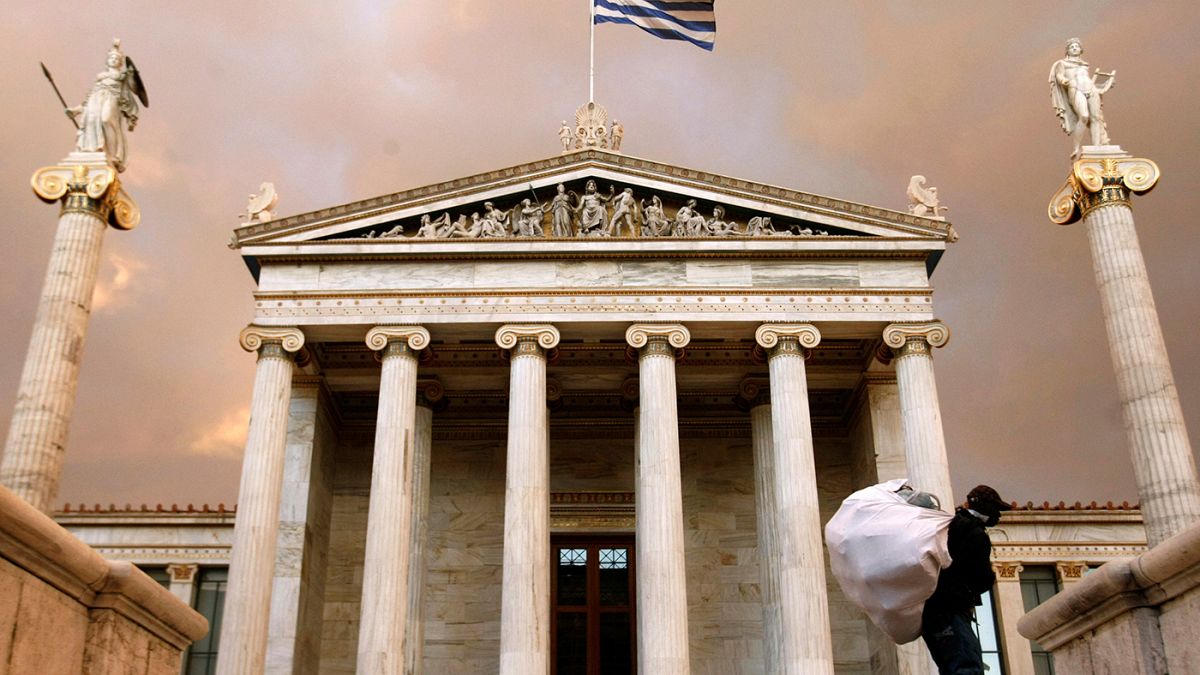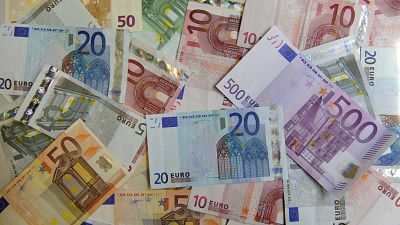By Dimitris Papadimoulis, Vice President of the European Parliament and head of the SYRIZA party delegation. This article represents the views of its author and not Euronews
The conclusion of the second review of the Greek bailout must take place in January 26th at the 2017 Eurogroup after a long and intentional delay by German Finance Minister Wolfgang Schauble. Germany’s punitive stance was known and expected, but it can no longer impede what has been achieved in Greece during the last couple of years: fiscal stability, a steady decrease in unemployment, partial distribution of a primary surplus towards vulnerable social groups, improvement of the investment climate, positive decisions on debt relief, broad alliances at EU level, within the EU Council and the European Parliament.
The Greek government is not alone in its effort, but it builds on strong and valuable alliances across Europe. Political forces that stand with the Greek side acknowledge the progress that has been made, the implementation of reforms, but also the firm stance of the SYRIZA party to redistribute wealth and provide social justice, even in the context of increasing pressure.
Almost two years ago, in January 2015, the Greek government was alone without any political support, yet now balances have shifted. German Finance Minister Schauble is trapped in its own biased stance and short-sighted strategy as he keeps pushing for imposing additional burdens against the Greek society and economy. In this respect, he insists on ignoring creditors’ commitments, avoiding abiding by what has been agreed in the context of the Greek programme.
The decision of the Greek government to deliver a one-time relief package to low-income pensioners and freeze the VAT rise on Aegean Islands affected by the refugee crisis does not have any fiscal impact for 2017 and 2018. At the same time, there has been no Eurogroup summit that has decided to freeze implementation of Greece’s debt relief measures. Essentially, there was no unilateral action by the Greek government, as some circles have attempted to widely circulate, but a unilateral decision taken by Mr Schauble – a decision that has been publicly and strongly criticized by the European Parliament’s President Martin Schultz, European Commissioner Moscovici, President of Socialists and Democrats Gianni Pitella, head of ESM Klaus Regling, Commission’s Vice President Valdis Dobrovkis, French President Hollande and Finance Minister Sapin.
The German right-wing forces are using the IMF as a Trojan horse to exert deeper pressure on the Greek side. As a matter of fact, they both seek to keep the Eurozone’s current and problematic fiscal framework untouched, impeding any possibility of revision and adjustment of the economic policy mix implemented since 2010. This policy mix damages social cohesion, weakens development and growth at the expense of European societies.
The delay in the conclusion of the second review is caused by Germany’s stance to keep the IMF involved in the Greek program, waiting to have a clear view on the intention of the US President-elect Donald Trump over that issue. At the same time, the German government wants to keep a hard position against Greece while waiting for the political developments in the domestic field, with the view to the forthcoming elections in September. The CDU and CSU have been weakened by the growing appeal of the populist and xenophobic AfD, thus projecting a robust and uncompromising position against the Greek government is seen as a strategic tool to increase their popularity . A more flexible approach for Greece would be considered as a proof of weakness, something that could further damage Chancellor Merkel’s and Finance Minister Schauble’s popularity.
Nonetheless, the conditions for challenging the prevailing German leadership have been already set at EU level, but also within Germany, where SPD, Die Linke and the Greens are putting their forces together against the conservative right. The Greek government is supported by the European Commission, the French government, the Socialists and Greens in the European Parliament. It is the first time, after long and demanding negotiation rounds, that alliances of the Greek government are flourishing, pushing for positive developments in Greece and Eurozone.
Greece is showing stability and determination. Progressive forces in the EU have to be inspired by the efforts and resilience of the Greek government and create the conditions for getting rid of austerity, and paving the way for growth-oriented and cohesion policies.
By Dimitris Papadimoulis, Vice President of the European Parliament, head of SYRIZA party delegation. This article represents the views of its author and not Euronews



